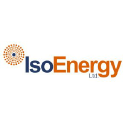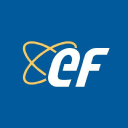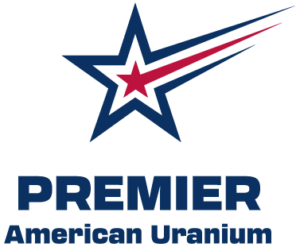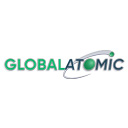Uranium News: US Nuclear Fuel Recycling Bill

U.S. Senators Ted Cruz (R-Texas) and Martin Heinrich (D-N.M.) have introduced "The Advancing Research in Nuclear Fuel Recycling Act," a bipartisan bill that could significantly impact the nuclear energy sector and related industries. This legislation mandates a comprehensive study on recycling spent nuclear fuel in the United States, potentially opening new avenues for investment and technological advancement in the energy sector.
Key Points for Investors
- Policy Shift: This bill marks a potential turning point in U.S. nuclear policy, moving away from the "one-time-through" fuel cycle towards a more sustainable and efficient approach.
- Market Opportunity: The initiative could create new markets in nuclear fuel recycling, waste management, and related technologies.
- Energy Independence: Successful implementation could reduce U.S. dependence on foreign nuclear fuel sources, particularly from geopolitical rivals like Russia.
- Environmental Impact: Recycling spent nuclear fuel could significantly reduce nuclear waste storage requirements, addressing a major environmental concern.
- Bipartisan Support: The bill's bipartisan nature suggests a higher likelihood of passage and long-term policy stability.
- Industry Backing: Major players in the nuclear industry have expressed strong support, indicating potential for rapid adoption and implementation.
Detailed Analysis
Legislative Background
The bill, introduced by Senators Cruz and Heinrich, requires the U.S. Department of Energy (DOE) and the National Academy of Science to establish an independent committee of experts to study the feasibility, costs, benefits, and risks associated with recycling spent nuclear fuel in the United States.
Current Nuclear Waste Situation
- Over 90,000 metric tons of spent nuclear fuel from commercial power plants in the U.S.
- Annual increase of 2,000 metric tons
- 70+ storage sites across the country, with 20 sites at decommissioned plants
Potential Benefits of Nuclear Fuel Recycling
- Waste Reduction: Recycling could significantly decrease the volume of nuclear waste requiring long-term storage.
- Resource Efficiency: Extracting additional energy from spent fuel could enhance the overall efficiency of nuclear power generation.
- Supply Chain Security: Reducing dependence on imported nuclear fuel, particularly from countries like Russia, could enhance national energy security.
- Medical and Technological Applications: Recycling processes could yield rare elements and isotopes crucial for advanced medical treatments and cutting-edge technologies.
- Job Creation: Developing a domestic recycling industry could create high-skilled jobs in the energy and technology sectors.
International Context
Countries like France, the United Kingdom, and Japan already implement nuclear fuel recycling programs. The United States, despite being a leader in nuclear technology, has lagged in this area due to historical policy decisions. This bill represents an opportunity for the U.S. to catch up with and potentially surpass international counterparts in nuclear fuel management.
Industry Perspectives
Several key industry players have voiced strong support for the bill:
Curio (Ed McGinnis, CEO):
- Emphasized the bill's potential to unlock America's energy independence
- Highlighted the importance of bridging technology and policy in the nuclear sector
Oklo (Jacob DeWitte, Co-Founder and CEO):
- Expressed appreciation for Congressional support of commercial recycling
- Noted Oklo's ongoing efforts to deploy its own recycling program
Nuclear Energy Institute (Doug True, Senior VP and Chief Nuclear Officer):
- Supported the bill's potential to enhance sustainability and economics of existing and advanced reactors
- Highlighted potential improvements in U.S. energy security
- Noted the possibility of converting used fuel into more easily disposable forms
Investment Implications
- Nuclear Energy Sector: Companies involved in nuclear power generation, fuel production, and waste management could see increased interest and potential growth opportunities.
- Technology and Research: Increased funding and focus may benefit firms specializing in nuclear technology, particularly fuel recycling and advanced reactor designs.
- Materials and Rare Earth Elements: Recycling could yield valuable materials, potentially impacting supply chains for rare earth elements and specialized isotopes.
- Environmental Services: Companies offering solutions for nuclear waste storage and management might need to adapt their business models to the changing landscape.
- Energy Infrastructure: Potential shifts in nuclear fuel cycles could necessitate updates to existing infrastructure, creating opportunities for construction and engineering firms.
- International Markets: U.S. companies could gain competitive advantages in global markets as domestic capabilities in nuclear fuel recycling develop.
Risks & Challenges
- Regulatory Hurdles: Implementation of new nuclear technologies typically faces stringent regulatory scrutiny, which could delay practical applications.
- Public Perception: Nuclear energy and waste management remain controversial, potentially affecting policy implementation and market adoption.
- Technical Challenges: Developing safe, efficient, and economically viable recycling processes presents significant technical hurdles.
- International Relations: Changes in U.S. nuclear fuel policies could impact international agreements and relationships, particularly with current fuel suppliers.
- Market Disruption: Established nuclear fuel supply chain players might face challenges adapting to new recycling paradigms.
- Long-Term Nature: The nuclear industry operates on extended timelines, meaning significant returns on investment may take years to materialize.
Future Outlook
If passed, this bill could set in motion a series of events that reshape the U.S. nuclear energy landscape:
Short-term (1-3 years):
- Increased funding for research and development in nuclear recycling technologies
- Potential stock market reactions for companies positioned to benefit from the initiative
- Formation of new industry partnerships and research collaborations
Medium-term (3-7 years):
- Pilot projects and initial commercial applications of recycling technologies
- Potential shifts in nuclear waste storage strategies
- Emergence of new players in the nuclear fuel cycle market
Long-term (7+ years):
- Possible large-scale implementation of nuclear fuel recycling in the U.S.
- Significant reductions in nuclear waste storage requirements
- Potential for the U.S. to become a global leader in nuclear fuel cycle technologies
"The Advancing Research in Nuclear Fuel Recycling Act" represents a potentially transformative moment for the U.S. nuclear energy sector. While the immediate impact may be limited to increased research funding and market speculation, the long-term implications for energy independence, waste management, and technological advancement are substantial. Investors should closely monitor the progress of this bill and related developments in the nuclear energy sector, as they could signal significant shifts in energy policy and create new investment opportunities in the coming years.
Uranium Companies Taking Advantage of the US Nuclear Revival
ATHA Energy
ATHA Energy is a Canadian mineral company at the forefront of uranium exploration and development, committed to shaping a clean energy future. With a strategic and balanced portfolio, ATHA is well-positioned to drive value in the uranium sector. The company's assets include three 100%-owned post-discovery uranium projects: the Angilak Project in Nunavut, and CMB Discoveries in Labrador, which host historical resource estimates of 43.3 million lbs and 14.5 million lbs U3O8 respectively, as well as the newly discovered basement-hosted GMZ high-grade uranium discovery located in the Athabasca Basin.
ATHA Energy distinguishes itself by holding the largest cumulative prospective exploration land package, spanning 8.4 million acres, in two of the world's most prominent basins for uranium discoveries. This extensive land holding provides ATHA with significant exploration potential and opportunities for future discoveries. Additionally, the company maintains a 10% carried interest in key Athabasca Basin exploration projects operated by industry leaders NexGen Energy Ltd. and IsoEnergy Ltd., further diversifying its portfolio and exposure to potential discoveries.
With its comprehensive asset base and strategic positioning, ATHA Energy is poised to capitalize on the growing demand for clean energy sources. The company's focus on uranium exploration and development aligns with the global shift towards sustainable and low-carbon energy solutions. By leveraging its extensive portfolio of uranium assets and exploration potential, ATHA Energy aims to create long-term value for its stakeholders while contributing to the advancement of clean energy resources.
Energy Fuels
Energy Fuels stands as a leading US-based critical minerals company, with a diverse focus encompassing uranium, rare earth elements (REEs), heavy mineral sands (HMS), vanadium, and medical isotopes. For several years, Energy Fuels has maintained its position as the foremost producer of natural uranium concentrate in the United States. This vital product is supplied to nuclear utilities, where it undergoes further processing to fuel carbon-free nuclear energy production.
The company's operational footprint spans several conventional and in situ recovery uranium projects across the western United States. A cornerstone of Energy Fuels' operations is the White Mesa Mill in Utah, which holds the distinction of being the only fully licensed and operational conventional uranium processing facility in the country. This versatile facility not only processes uranium but also produces advanced REE products and vanadium oxide when market conditions are favorable. Furthermore, the Mill is gearing up to commence pilot-scale recovery of certain medical isotopes from existing uranium process streams, contributing to emerging cancer treatments.
Energy Fuels' portfolio extends beyond uranium and rare earth elements. The company owns and operates the Kwale HMS project in Kenya, which is approaching the end of its productive life. Looking ahead, Energy Fuels is actively developing three additional HMS projects: the Toliara Project in Madagascar, the Bahia Project in Brazil, and the Donald Project in Australia. For the Donald Project, the company has secured the right to earn up to a 49% interest in a joint venture with Astron Corporation Limited.
Through its diverse operations and strategic projects, Energy Fuels is positioned at the forefront of critical minerals production and development, playing a crucial role in supplying materials essential for clean energy, advanced technologies, and medical applications.
Global Atomic
Global Atomic Corporation is a publicly listed company that offers a unique combination of high-grade uranium mine development and cash-flowing zinc concentrate production. This dual focus provides the company with a diverse portfolio in the mining and metals sector.
The company's Uranium Division is at the forefront of its growth strategy, currently developing the fully permitted, large-scale, high-grade Dasa Deposit in Niger. This significant uranium resource was discovered in 2010 by Global Atomic's own geologists through grassroots field exploration, underscoring the company's exploration expertise. The project reached a major milestone on November 5, 2022, with the "First Blast Ceremony," marking the beginning of mine development. The company is progressing towards the commissioning of the processing plant, scheduled for Q1, 2026. Beyond the Dasa Deposit, Global Atomic has identified three additional uranium deposits in Niger, which are slated for further assessment and development work, potentially expanding the company's uranium resources.
Complementing its uranium operations, Global Atomic's Base Metals Division holds a 49% interest in the Befesa Silvermet Turkey, S.L. (BST) Joint Venture. This venture operates a state-of-the-art zinc recycling plant in Iskenderun, Türkiye. The facility specializes in recovering zinc from Electric Arc Furnace Dust (EAFD), producing a high-grade zinc oxide concentrate that is sold to zinc smelters worldwide. This operation not only provides a steady cash flow but also contributes to sustainable metal production through recycling.
The BST Joint Venture is operated by Befesa Zinc S.A.U. (Befesa), which holds the majority 51% interest. Befesa is a recognized market leader in EAFD recycling, commanding approximately 50% of the European EAFD market. With facilities spread across Europe, Asia, and the United States of America, Befesa brings extensive expertise and market access to the joint venture.
Through its dual focus on uranium development and zinc recycling, Global Atomic Corporation is positioned as a versatile player in the mining and metals industry, balancing the high-growth potential of its uranium assets with the steady cash flow from its zinc operations.
IsoEnergy
IsoEnergy Ltd. is a prominent and globally diversified uranium company with a strategic presence in some of the world's top uranium mining jurisdictions, including Canada, the United States, and Australia. The company's portfolio encompasses substantial current and historical mineral resources at various stages of development, providing investors with near, medium, and long-term exposure to the potentially rising uranium market.
At the forefront of IsoEnergy's operations is the advancement of its Larocque East Project, located in Canada's prolific Athabasca Basin. This project is home to the Hurricane deposit, which has earned distinction for hosting the world's highest-grade Indicated uranium Mineral Resource. This exceptional asset underscores IsoEnergy's potential for significant value creation in the uranium sector.
In addition to its Canadian flagship project, IsoEnergy maintains a portfolio of permitted, past-producing conventional uranium and vanadium mines in Utah. These assets are strategically positioned with a toll milling arrangement in place with Energy Fuels Inc., enhancing their operational readiness. Currently on stand-by, these mines are primed for rapid restart as market conditions improve, positioning IsoEnergy as a potential near-term uranium producer.
IsoEnergy's diverse asset base, spanning multiple jurisdictions and development stages, offers a balanced approach to uranium resource development. This strategy provides the company with the flexibility to capitalize on market opportunities while mitigating risks associated with single-jurisdiction operations. As the global demand for clean energy continues to grow, IsoEnergy stands ready to play a significant role in the future of uranium production.
Premier American Uranium
Premier American Uranium Inc. is a dynamic player in the U.S. uranium industry, focused on the consolidation, exploration, and development of uranium projects across key American mining regions. The company's strategic strength lies in its extensive land holdings spread across three prominent uranium-producing areas in the United States: the Grants Mineral Belt of New Mexico, the Great Divide Basin of Wyoming, and the Uravan Mineral Belt of Colorado. These regions boast a rich history of past production and host both current and historic uranium mineral resources, providing PUR with a solid foundation for growth and development.
Premier American Uranium is actively advancing its portfolio through ongoing work programs designed to unlock the value of its diverse projects. The company's assets span various stages of development, offering a balanced approach to resource exploration and potential production. This strategic positioning allows PUR to capitalize on the resurgence of interest in domestic uranium production.
A key strength of Premier American Uranium lies in its robust backing from industry leaders and financial institutions. The company is supported by Sachem Cove Partners, IsoEnergy Ltd., Mega Uranium Ltd., and additional corporate and institutional investors. This strong financial foundation is complemented by an unparalleled team with extensive experience in U.S. uranium exploration and development, providing PUR with the expertise needed to navigate the complexities of the uranium market.
PUR's entry into the market comes at a time when uranium fundamentals are the strongest they have been in more than a decade. This timing, combined with the company's strategic asset base and experienced leadership, positions Premier American Uranium as a compelling opportunity in the resurgent U.S. uranium sector. As the demand for domestic uranium sources grows, PUR stands ready to play a significant role in meeting America's energy needs while capitalizing on the favorable market conditions.
Analyst's Notes




Subscribe to Our Channel
Stay Informed
















































